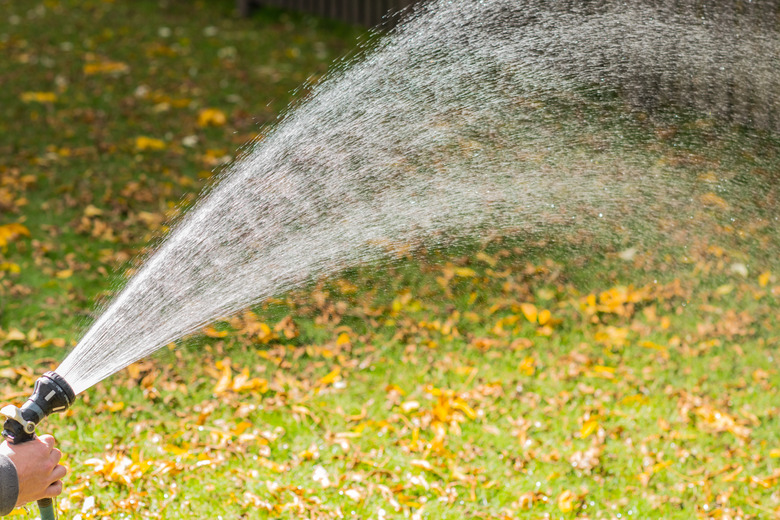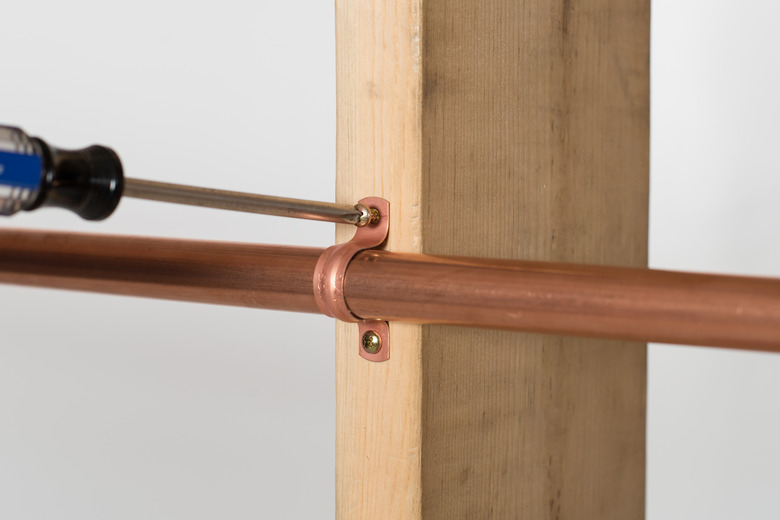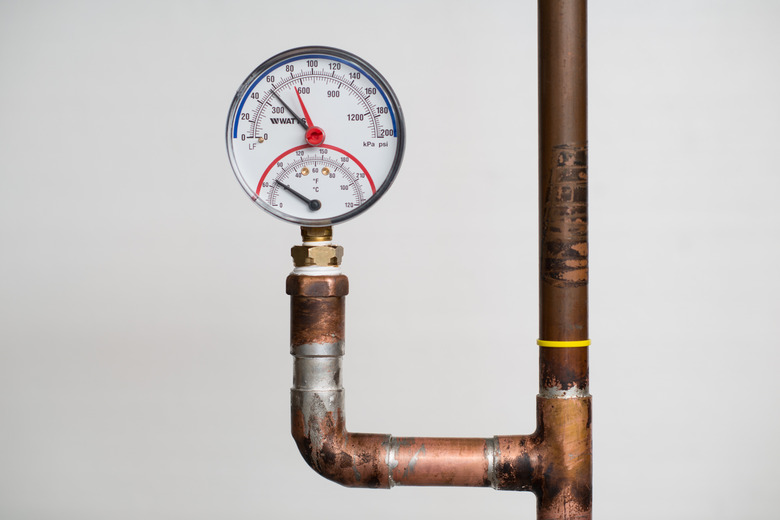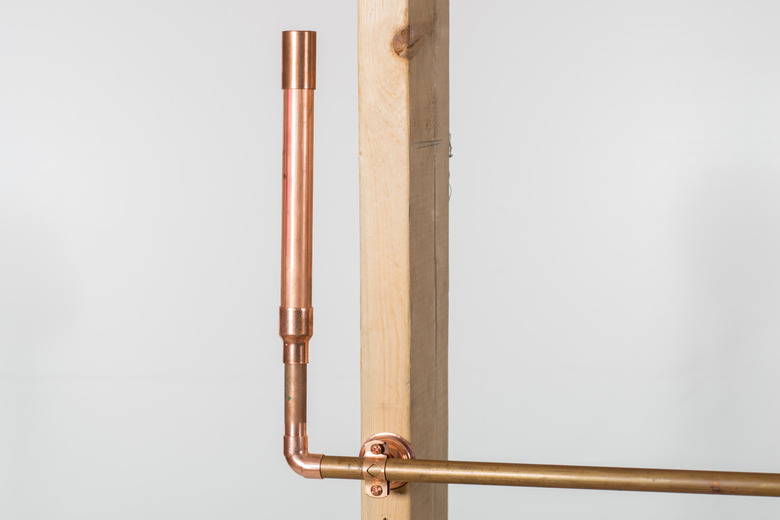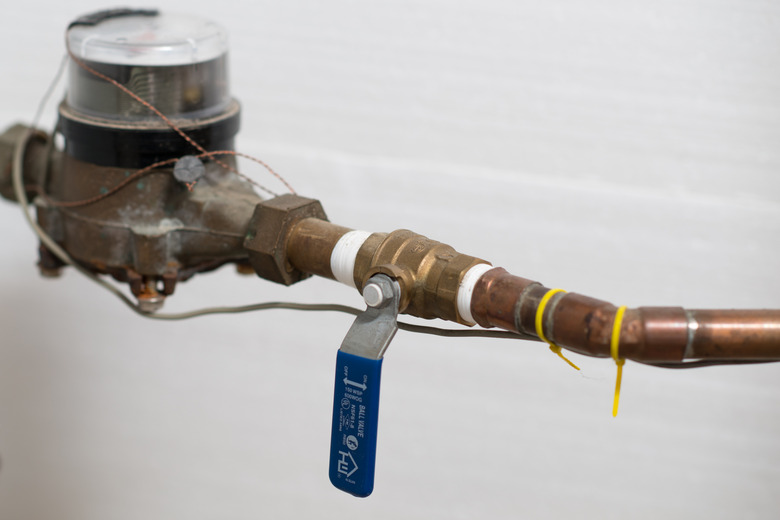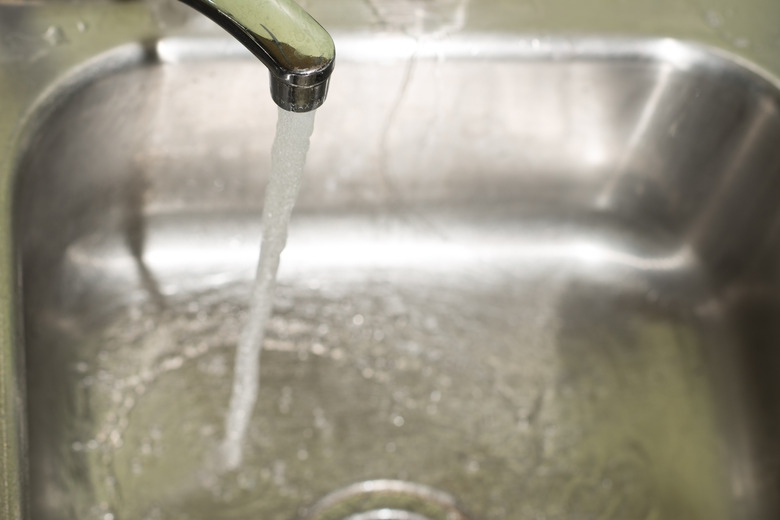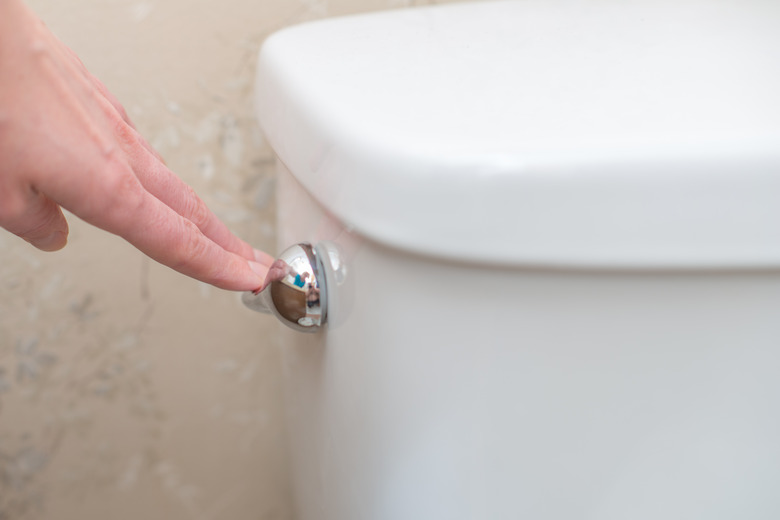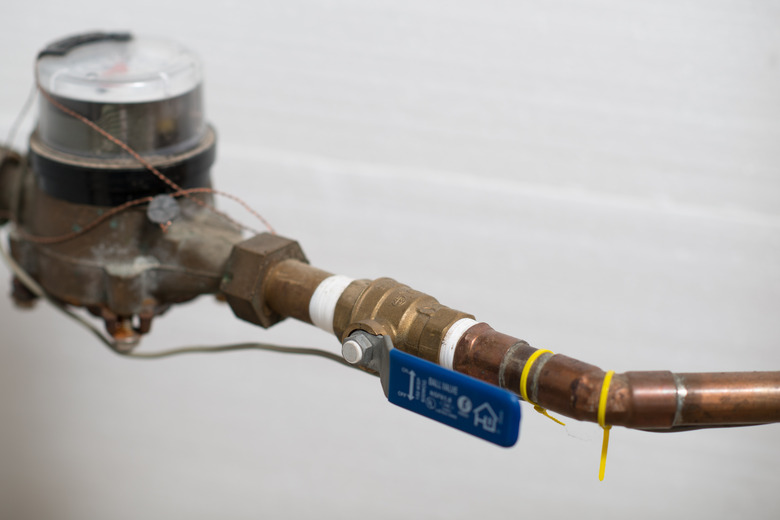How To Stop Water Pipes From Making Noise
Things Needed
-
Pipe clamps
-
Screws
-
Wrench
-
Water hammer arrester
-
Pipe cutter
-
Torch
-
Soldering flux
-
Lead-free solder
Tip
Tapping sounds coming from your hot water pipes when the air outside is cold are caused by expansion and contraction of the metal. These sounds are normal and benign, but if you find them annoying, wrap pipe insulation around the pipes to stop them.
Warning
Water hammer and loose, vibrating pipes are conditions that need attention. If allowed to persist, they can weaken the pipe joints and cause leaks.
From the outside, it's easy to get the impression that the water in your plumbing pipes is static, but nothing could be further from the truth. When a faucet is open, water churns and swirls in the pipes with all the violence of a flowing river, and because it's incompressible and under pressure, it exerts considerable force on the pipes when it changes direction or when you close the faucet. Your pipes can shake and vibrate, and you may hear sounds like hissing, rattling, tapping, banging or clanking. It may take a combination of procedures to quiet them.
Banging and Clanking
Step 1
Stop cyclical banging or clattering sounds by more securely fastening banging pipes to the framing with pipe clamps or mounting straps. If they are already secure, and the clamps have come loose, replace the nails holding the clamps with screws. If the pipe can't be accessed, wedge padding at the point the pipe exits the wall or at shut-off valves.
Step 2
Check the water pressure meter near the main valve if you hear loud clanking sounds from anywhere in the water system. The pressure should be less than 80 pounds per square inch. If it's greater than this, adjust the pressure regulator, which should be near the meter, by turning the control counterclockwise with a wrench to lower the pressure.
Step 3
Install a water hammer arrester near any fixture from which you hear excessive banging or clanking. Water hammer occurs because water, which is incompressible, strikes the faucet or valve violently when you open or close it. An arrester contains an air chamber that absorbs some of the energy of the pressurized water.
Bleeding Off Excess Air
Step 1
Turn off the main water valve to the house to bleed air from the plumbing system and stop hissing and rattling sounds. These are the sounds that water makes as it passes by air trapped in elbows or horizontal runs.
Step 2
Go to the highest or farthest point from the main valve and turn on the faucet. Working your way back toward the main valve, open all the faucets, flush all the toilets, and turn on your washing machine and dishwasher momentarily until all the water is flushed from the system.
Step 3
Close all the faucets, starting from the one nearest the valve, and flush all the toilets a second time.
Step 4
Open the main valve slowly and let the system fill with water. If you have water hammer arresters installed in your pipes, the water will push the air back into the chambers where it is supposed to be. Expect some air to come out of the faucets when you turn them on for the first time.
